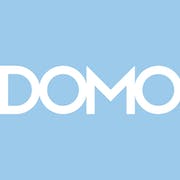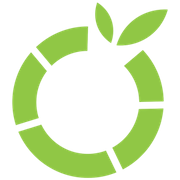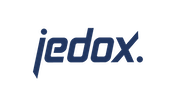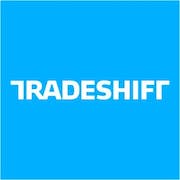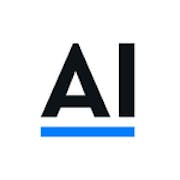Are you tired of sifting through piles of financial data in search of valuable insights? Do you struggle to generate reports that meet your organization's evolving needs? Well, fear not! The solution may be at your fingertips. Financial Reporting Software is here to revolutionize the way you approach financial reporting. With its cutting-edge features and customizable dashboards, this software delivers real-time data analysis and reporting, empowering businesses of all sizes to make informed decisions with greater ease and accuracy. If you're in the market for a Financial Reporting Software that can help you gain a competitive edge, look no further. In this guide, we'll take a deep dive into the world of Financial Reporting Software, exploring what it is, how it works, and what to consider when choosing the best one for your business needs.
What is Financial Reporting Software
Financial Reporting Software refers to computer programs designed to help businesses create and manage their financial statements and reports efficiently. It is a crucial tool for all types of businesses, as it simplifies the process of tracking financial data, generating reports, and analyzing financial performance. The software replaces tedious and time-consuming manual tasks, reducing the risk of errors and discrepancies in financial records. Financial Reporting Software is used by different types of companies, including small businesses, mid-sized firms, and large corporations. It is a perfect fit for businesses that have complex financial data or operate across multiple countries. Some common use cases of Financial Reporting Software include: - Generating regular financial statements, including balance sheets, income statements, and cash flow statements - Tracking and managing budgets, expenses, and revenues - Analyzing financial data to identify trends and patterns - Creating ad-hoc reports for specific financial analysis or auditing purposes - Streamlining communication and collaboration between different departments involved in financial reporting. The benefits of using Financial Reporting Software are numerous. They include accuracy, speed, and consistency in financial data reporting, reduced workload for finance staff, enhanced data security and privacy, and improved decision-making. The flexibility and versatility of the software allow businesses to customize their financial reports and statements to meet their unique reporting needs. In conclusion, Financial Reporting Software is an essential tool for businesses of all sizes and types, aiding them in generating accurate financial reports, tracking and analyzing financial data with ease, and making informed business decisions. Its benefits are many, and companies that opt to use it can save time and resources while increasing their productivity and profitability
Benefits of Financial Reporting Software
Financial reporting software is an essential tool for any business looking to streamline its financial accounting processes. With this software in place, companies can automate tedious manual tasks such as data entry, ensure greater accuracy in their financial reporting, and make more informed business decisions. Here are some of the most significant benefits of financial reporting software: - Time-saving: By automating the financial reporting process, businesses can save significant amounts of time and reduce the risk of human error. This allows accounting teams to focus on more valuable tasks, such as financial analysis and strategy planning. - Improved accuracy: With financial reporting software, companies can eliminate the risk of human error in financial reporting. The software uses algorithms to process and analyze financial data, ensuring that all calculations are accurate and error-free. - Real-time reporting: Financial reporting software provides real-time access to financial data. This allows companies to have an up-to-date view of their financial position at all times, enabling them to make more informed decisions. - Enhanced data visualization: Financial reporting software provides the ability to create rich data visualizations such as graphs and charts that make it easy to analyze financial data. This allows businesses to identify trends and important insights to guide their decisions. - Compliance: Financial reporting software also helps businesses remain compliant with regulatory requirements. The software automates many of the tasks required for compliance, reducing the risk of non-compliance and associated fines and penalties. In summary, financial reporting software can significantly improve financial accounting processes, saving time, improving accuracy, providing real-time reporting, enhancing data visualization, and ensuring compliance. By investing in this software, businesses can free up valuable resources, reduce the risk of errors, and make more informed decisions based on the insights provided by their financial data.
Features of Financial Reporting Software
Financial Reporting Software (FRS) is a powerful tool that enables organizations to track and analyze their financial data. Here are ten common features of Financial Reporting Software: 1. Data Integration: FRS allows you to integrate data from multiple sources, such as Excel, QuickBooks, and other accounting software, into a single platform. This feature saves time and reduces data entry errors. 2. Automation: Financial reporting software can automate mundane tasks such as data entry, report generation, and data reconciliation. This feature helps to reduce manual labor, save time, and increase productivity. 3. Customizable Financial Statements: FRS allows users to create and customize financial statements such as balance sheets, income statements, and cash flow statements. This feature enables users to track key financial metrics and gain insights into their business's financial performance. 4. Data Visualization: Data visualization tools such as charts, graphs, and dashboards, provided by FRS, help users to quickly analyze trends and make informed decisions. 5. Collaboration: FRS enables multiple users to access and share financial data securely. This feature streamlines the financial reporting process, reduces communication errors, and ensures accurate financial reporting. 6. Real-Time Reporting: Financial reporting software can generate real-time reports that allow users to access up-to-date financial data. This feature provides users with a real-time understanding of their business’s financial performance. 7. Budgeting and Forecasting: FRS enables users to create budgets and forecasts based on historical and current data. This feature simplifies the budgeting process and helps businesses plan for the future financially. 8. Tax Reporting: Financial reporting software can help businesses generate and file their tax returns accurately and on time. This feature ensures regulatory compliance and helps businesses avoid penalties. 9. Security: FRS comes with advanced security measures and permissions that control access to sensitive financial data. This feature ensures data security and prevents unauthorized access. 10. Scalability: FRS can scale with the growth of a business. It can handle large volumes of financial data and users without compromising its performance. This feature ensures that financial reporting remains smooth and consistent with business growth. In summary, Financial Reporting Software is a must-have tool for businesses looking to track, analyze and report on their financial data. Its many features, including data integration, automation, customizable financial statements, data visualization, collaboration, real-time reporting, budgeting and forecasting, tax reporting, security, and scalability, provide organizations with a complete view of their financial performance and streamline their financial reporting processes.
Considerations of Financial Reporting Software
When it comes to purchasing financial reporting software, choosing the right solution can have a significant impact on your business's success. Not only can the right software save you time and money in financial reporting, but it can also provide valuable insights into your business operations. Before making a decision, there are several factors to consider. One of the most critical factors is the software's compatibility with your existing systems. You want to ensure that the software integrates smoothly with your current tools and technology, so you can avoid disruptions in your day-to-day operations. Another essential factor to consider is the software's reporting capabilities. Depending on your business's size and structure, you may need a more robust reporting system that can handle complex financial analyses. Look for reporting software that offers customizable templates, so you can tailor your reports to meet your business's unique needs. Data security is another critical factor to consider. Your financial data is sensitive, and you must choose software that provides appropriate levels of security and privacy. Look for software that includes features like role-based access control and encryption to protect against unauthorized access. Usability is also critical in financial reporting software. The software should be easy to use, with an intuitive user interface that makes it easy to navigate and access the information you need quickly. Consider software that offers training and support services to ensure your team can make the most of the software's capabilities. Lastly, consider the cost of the software, including any licensing or subscription fees, implementation costs, and ongoing maintenance and support. While cost should not be the only factor in your decision, it is essential to choose software that fits your budget and provides a good return on investment. Choosing the right financial reporting software is essential for any business that wants to optimize financial reporting and gain valuable insights into their operations. By considering these factors and researching your options, you can find software that meets your business's unique needs and sets you up for long-term success.
Software Trends for Financial Reporting Software
Financial reporting software is going through a period of transformation in 2023, with several trends driving the change. One key trend is the adoption of cloud-based platforms, which offers greater flexibility, affordability, and sustainability. Automation and artificial intelligence (AI) will streamline repetitive tasks, freeing up time for accountants to provide advisory services. Real-time reporting features that allow updated financial information to be generated promptly and often are also on the rise. The industry is increasingly focused on data security and cyber protection measures. Finally, demand for transparent reporting and ESG considerations continue to gain momentum. As the industry continues to evolve, it is essential for businesses to adapt to emerging trends and stay ahead of the curve.


